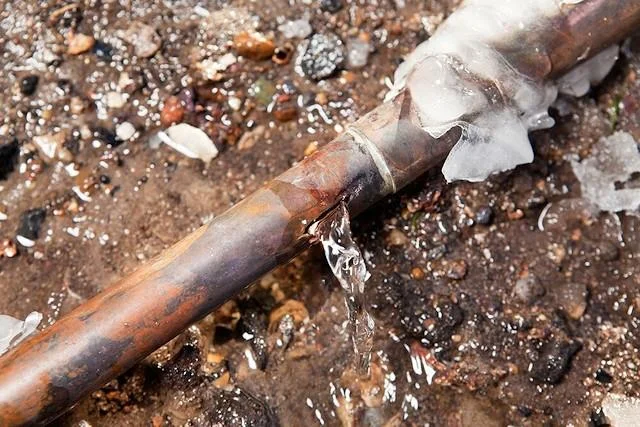How to Prevent and Handle Frozen Pipes with DAKS Plumbing
With over 30 years of experience in the plumbing industry, DAKS Plumbing knows how crucial it is to protect your pipes as temperatures drop. A little preparation can go a long way in preventing frozen pipes, saving you from costly repairs. Follow our expert tips to keep your plumbing system running smoothly, or watch our video for guidance on what to do if your pipes are already frozen.
Why Do Frozen Pipes Burst in Winter?
When water freezes, it expands and puts pressure on the inside of the pipe. Whether the pipe bursts depends on factors such as the amount of frozen water, the pipe’s material, age, and any existing corrosion. The good news is most frozen pipe issues can be prevented with a few simple steps.
According to the Association of British Insurers (ABI), the average cost of a burst pipe claim can reach £7,500 during freezing weather. Taking preventative measures is a wise investment of your time.
How to Prevent Frozen Pipes in Kent Homes
1. Keep Your Boiler in Top Condition
Ensure your boiler is serviced annually, ideally during the warmer months. A well-maintained boiler helps keep your heating system efficient, reducing the risk of cold spots that make pipes vulnerable to freezing.

2. Insulate Your Pipes and Water Tanks
Insulation is one of the most effective ways to prevent frozen pipes. Affordable pipe lagging and water tank jackets are easy to find at DIY stores and simple to install. Focus on these areas:
- Outdoor pipework: Cover drainpipes, overflow pipes, bends, valves, fittings, and outdoor taps with insulated covers.
- Cold areas: Insulate pipes in lofts, garages, and basements where temperatures drop the most.
- Water tanks: Fit jackets to water tanks in colder areas such as lofts, garages, and basements.
3. Encourage Warm Air Flow and Block Out the Cold
- Open loft hatches to allow warm air from your home to circulate.
- Keep cupboard doors open so warm air reaches hidden pipes.
- Maintain indoor temperatures at a minimum of 7°C, even when you’re away. Smart thermostats with frost protection can help.
- Seal draughty windows and doors, and use draught excluders to block cold air.
Other Key Frozen Pipe Precautions
Prevent Leaking Taps
Leaky taps can cause frozen drains, not prevent them. Contrary to popular belief, leaving a tap dripping during icy weather can cause drains to freeze, leading to water backing up and even overflowing. Ensure taps are fully turned off and fix persistent leaks promptly.
Locate Your Stopcock
Knowing how to shut off the water supply is crucial if your pipes freeze. Find your stopcock, clear the area around it for easy access, and be ready to use it immediately if you spot a leak.
Turn Off Water When Away
If you’ll be away for several days, turn off your water at the stopcock. You can also drain the system by running your taps until no water comes out, then closing them.
Watch for Warning Signs
- Reduced or no water flow from taps or showers
- Exposed pipes that appear frosty or damp
- Unusual noises like bubbling or whistling when using sinks or flushing toilets
- Damp patches or rings on walls or ceilings
With these simple precautions, you can safeguard your plumbing system against harsh winter weather. For professional support, inspections, or emergency plumbing repairs in Kent, contact DAKS Plumbing — your trusted experts with decades of experience.
